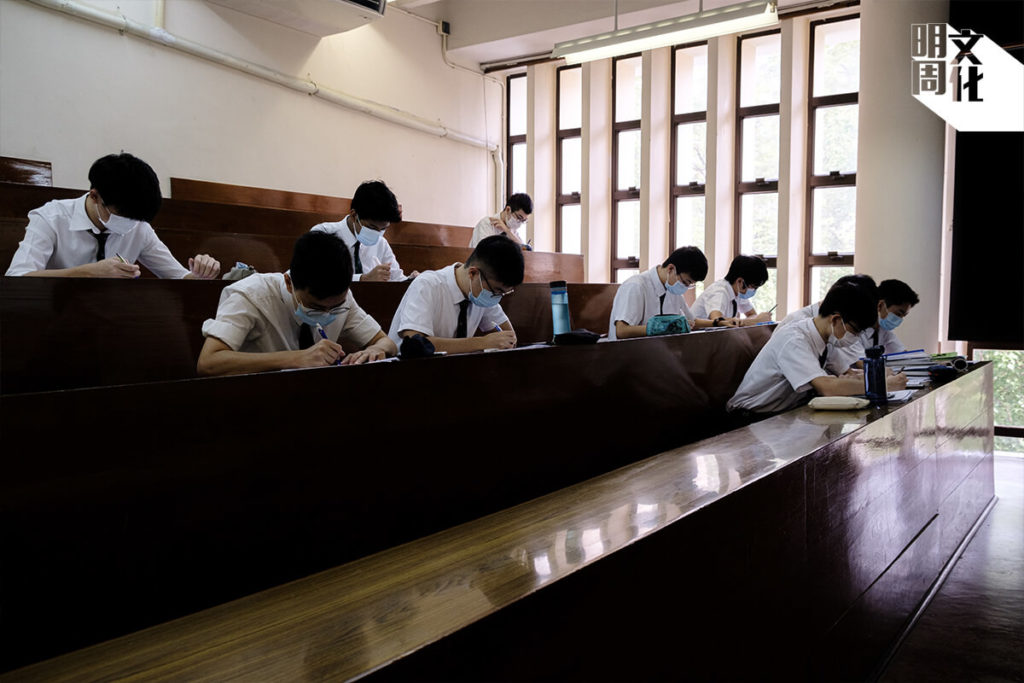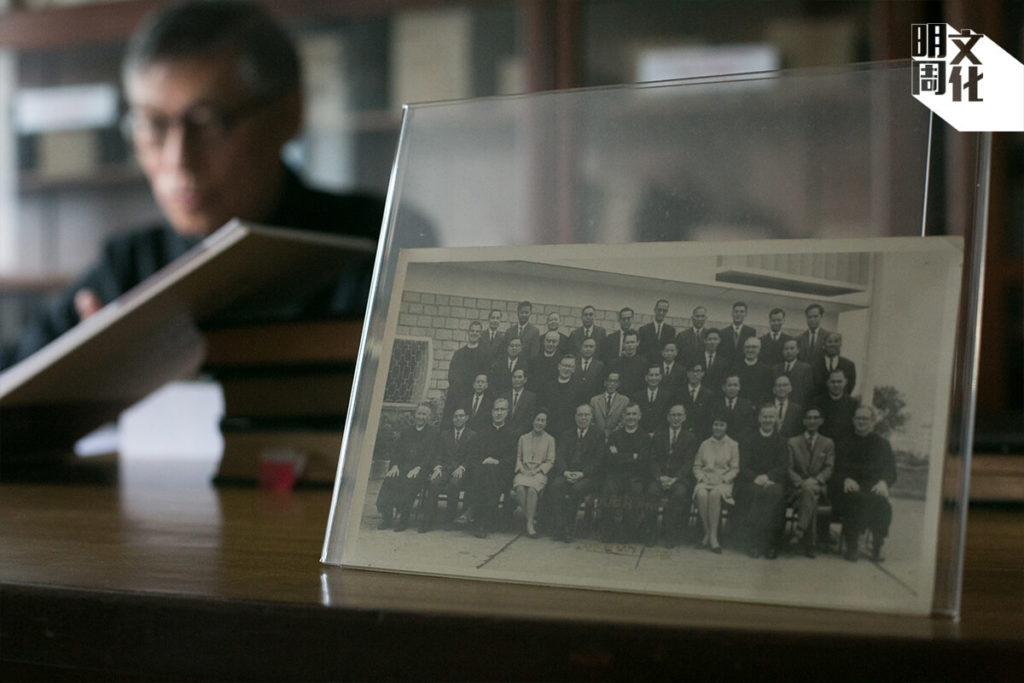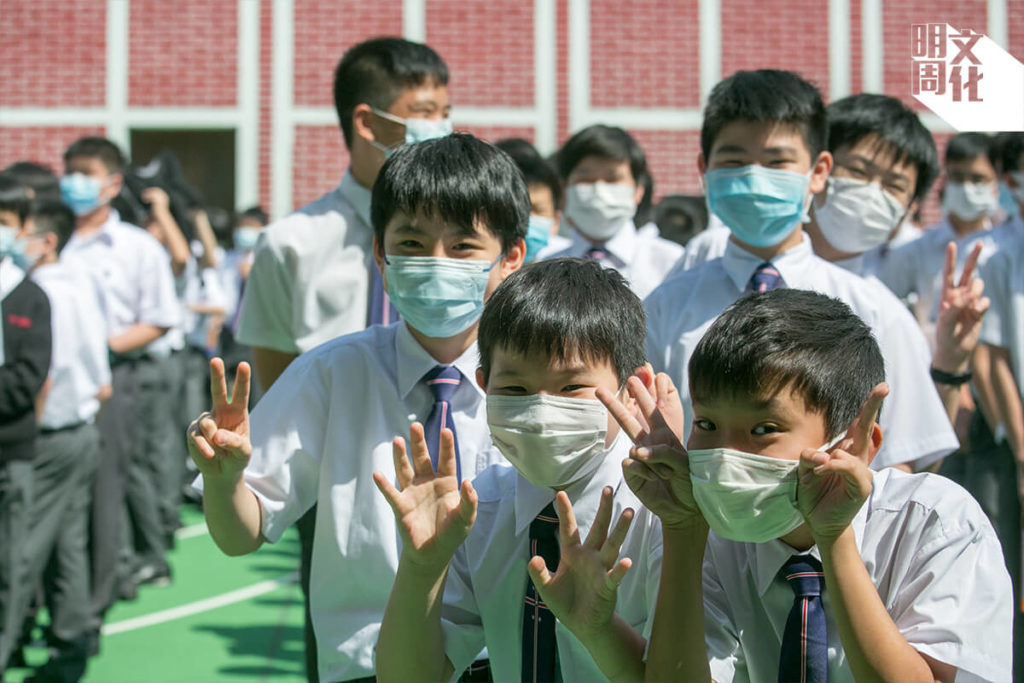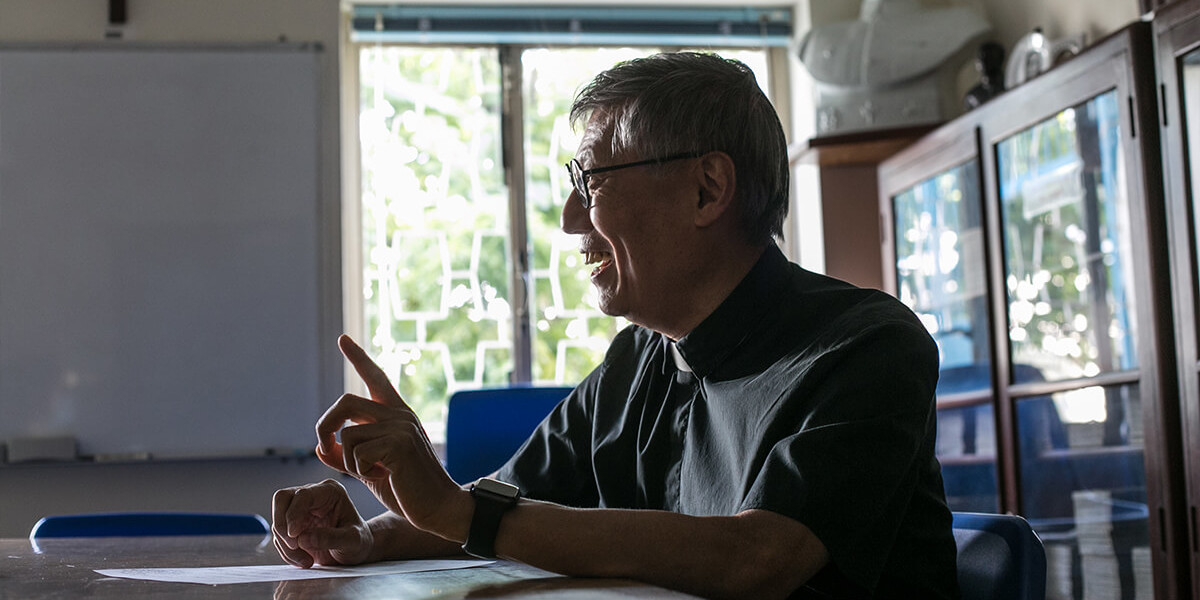A mile from shore a fishing boat chummed the water, and the word for Breakfast Flock flashed through the air, till a crowd of a thousand seagulls came to dodge and fight for bits of food. But way off alone, a seagull was making hundreds of glides – making a curve, stretching his wings, twisting, stalling. He looked thin and his bones showed under his ruffled feather. His parents have told him, “Why is it so hard for you to be like the rest of the flock, Son? Why don’t you eat like others?”
He had only one goal: to fly faster, higher, farther, and search for freedom. Until one day, he broke through the gliding limitation of a seagull. He was outcast by his flock.
He did not give up. He kept flying – flying beyond Earth and reaching heaven. A seagull master told him: “You will know the meaning of kindness and of love.” One day, he flew back to Earth from heaven and returned to the same shore helping other seagulls who desired freedom to overcome their limitations.
Seeing more and more seagulls desiring freedom, he advised a younger seagull to take up his role: “You have to practice and see the real gull, the good in every one of them, and to help them see it in themselves. That’s what I mean by love.”
After that, he vanished into empty air.
Let us fly together
The story of “Jonathan Livingston Seagull” is a compulsory teaching material of Fr Stephen Chow SJ for his Ethics class. “I like that the book is thin and short!” Fr Stephen smiled. “The story is short, but there are lots of wisdom.” His face turned serious, “Finding your potential, determining to practice it, and even motivating other seagulls to fly together – this belief is important for the youth.”
“You got to remember, God loves you as you are, not as what you ought to be.” Fr Cyril Barrett SJ, the late principal, told students during a homily when Fr Stephen was studying in form 4 (grade 10). It touched his heart.
Fr Stephen developed epilepsy when he was a form 1 (grade 7) student. Taking neurological medication chronically affected his attention span as well as his academics. Knowing that he would not do well in his studies, Fr Stephen put all his energies into extra-curricular activities. “My parents must have been disappointed thinking that I did not focus on my studies. But I had more fulfillment in extra-curricular activities. At least, I was able to say to myself that I am useful.”
Fr Stephen was determined to be a priest since form 3 (grade 9). When his parents found out, they were surprised and from then on, Fr Stephen kept silent about it. When he went to college in the United States, Fr Stephen took his major in psychology and minor in philosophy. It was his entry point to theology. In 1988, Fr Stephen was missioned to Hong Kong and taught in Wah Yan Colleges in both Kowloon and Hong Kong.
At the beginning in Wah Yan College, Kowloon, Fr Stephen felt like in exile. “I grew up in Hong Kong Island, and crossing the sea (to Kowloon) was like going to a barren land.” His mother visited him and saw some priests wearing shabby clothes. She asked him sadly, “Will you be like the old fathers in the future?” Fr Stephen was amused, yet he felt the care of his mother. “The love of parents is great. Seeing their children live happily, they are willing to change.” From disinclination to reluctant acceptance, until they witnessed his works in Wah Yan, they eventually became proud of their son.
Students cannot be uninformed

The main subject Fr Stephen taught was Ethics. Ethics is moral philosophy. Morals discusses what we should or should not do, while ethics asks why we can or cannot do such things. Fr Stephen recalled how Fr Joseph Shields SJ treated them like college students when they were in senior high school. He guided students to think about topics like nature, euthanasia, abortion by asking questions instead of avoiding the issues.
Inspired by this method, Fr Stephen adopted the same pedagogy. Some priests objected arguing that contraception does not follow Catholic Social teachings. Fr Stephen insisted that students cannot be left uninformed. Teaching Catholic teachings and learning ways of contraception are not contradictory.
“For teenagers who are walking hormones, how can they wait until it is safe? Talking about abstinence only is unrealistic. I know it because students have talked to me after they committed it. I am not encouraging students to enter into a sexual relationship, but they need to learn to respect their bodies and of others.” Fr Stephen believes students can think more comprehensively when they know more. He always uses different possible ways to inspire students to think, like engaging them in debates, plays, and shooting videos. This is the purpose of education for him.
Wah Yan College, Kowloon was also called “University of Yau Ma Tei” because students always skipped classes. Fr Stephen jested, “When I was a student in Wah Yan, I also skipped classes. And so now, I don’t give special treatment for those students.” Once, Fr Stephen passed by the corridor and discovered that a teacher was speaking to several students only and others were at the playground. “When students think they can study on their own, how will they listen to you?” Fr Stephen said.
If this is the case for the major subjects, how about the class in Ethics? “That’s why I felt touched when students told me, ‘Brother, I only come back for your class. Then I will leave.’ In other words, my words are valuable for the students.”
“You are valuable to me”

Fr Stephen started teaching in 1988. The June-Fourth Movement happened the next year. He was not absent for such an important event. “I told the students I would go on the streets. They could come along if they want.” Having lived in foreign countries for many years, Fr Stephen thinks of himself as a “global citizen”. Until he experienced the social movement, he realised that he also upheld the identities of a “Hongkonger” and a “Chinese” in his heart. He shared his reflection with students without reservation. “Students like to talk with me, maybe because they think I am honest,” Fr Stephen remarked.
From 1993 to 1995, Fr Stephen finished his master’s degree in Chicago. He had an opportunity to continue his doctorate, but he chose to go back to Hong Kong. “I want to accompany students,” Fr Stephen said. Having experienced the June-Fourth Movement, he understood that students were anxious and perplexed with the social unrest, especially the uncertainties after 1997. “Wah Yan is like a second home for students. Some students cannot get the affection they seek from their original families. They need accompaniment in school.”
When Fr Stephen was studying in Wah Yan College, Hong Kong, there were still seven to eight priests teaching in the school. However, as time flew, there were fewer priests in developed and affluent countries. Fr Stephen was the only young scholastic in Wah Yan when he returned to Hong Kong. Students were used to talking with him about personal matters – studies, relationships, families, politics. Fr Stephen could talk about everything with students. “Students put great trust in me. If I left at this important moment, would they not feel abandoned?”
“Men for and with others” is the spirit of Jesuit education. “Jesus is incarnated into the world so as to experience humanity and to accompany us closely.” Fr Stephen chose to accompany students. He witnessed their life events. He baptised one of his students, celebrated his wedding Mass, baptised his two daughters, presided over the funeral of his father and mother-in-law. Recently, this student, whom he had visited in the United States, was diagnosed with terminal cancer. He may not journey with him during the last stage of his life because of the pandemic. “I always hope students feel they are important in my heart – they are valuable to me.”
Wahyanites are not all champions
After finishing his doctorate in the US, Fr Stephen took up the position of school supervisor at Wah Yan College, Hong Kong in 2007 as well as Wah Yan College, Kowloon the next year. Running a school is more stressful than being a teacher. “Wah Yan has never emphasised making champions in examinations. Every year during recruitment day, I remind the parents: If you want your son to become a champion, you chose the wrong school.” The orientation on recruitment day stresses the physio-psycho-spiritual development of students and introduces the big brother scheme. The alumni who are invited to speak unanimously express, “Academics are not the top priority.” “The Society of Jesus values education. It is vital to focus on study, but academic performance is not the most important.” Fr Stephen knows some alumni think the academic performance of current Wah Yan students is not as good as before. In the past, Wah Yan could recruit the top 500 hundred students in Hong Kong based on the results of their primary school public examination. Later, schools were classified into five bands and the academic results of Wah Yan students belonged to the first one-fifth in Hong Kong. Then, school classification was changed to three bands, their students ranked as the first one-third in Hong Kong. “Individual difference among students has become bigger. We cannot compare with the past. We should adjust our pedagogy.” Fr Stephen said.
Freedom is the spirit of Wah Yan. Students have to take responsibility for their decisions. During Fr Stephen’s years as a student, there were students who got left behind every year. “Although the incoming students in Wah Yan are all band 1 students, every student has his personal development. Even if the school does not guarantee students to enter college, we cannot ‘sacrifice’ students in the public examination every year.” After becoming the school supervisor, Fr Stephen implements tutorial programmes. “As long as students need it, we try our best to help.”
Being a bridge
“The hardest thing in running a school is to act as a bridge,” Fr Stephen said. After the Anti-Extradition Law Amendment Bill Movement in 2019, the society became divided, as well as teachers and students. There are alumni, students, and teachers who belong to both blue and yellow camps. “Nobody is neutral in the society. If I tell you that I am neutral, I may be lying.” Fr Stephen said, “but I listen and accept other opinions.”
“Do you know how a bridge works?” Fr Stephen suddenly asked. “A bridge must be stepped over by people, so that it can bring people to the other side.” He laughed, “Being a bridge, in a sense, entails bearing the burden. My words may not cater to both sides, but at least, it brings people from the two sides to come together in the middle. Otherwise, there is no future for society.”
Fr Stephen hopes the school can become a bridge to allow space for conversation. “In Wah Yan, everybody can speak what they want, any topic, as long as it is not propaganda but a discussion from different perspectives supported by convincing facts.” He gives an example. Nowadays, advocating for the “independence of Hong Kong” is illegal. Students need to know the legal consequences. However, we also need to understand why people support independence. It is the same as his class that tackled contraception and abortion. “Imagine if we ask students to keep silent, how can we talk with them when things go underground? How can we accompany them?” Fr Stephen insists that when students encounter problems, teachers can guide them to think and look for answers through discussion.
Students need accompaniment

“Jesuit education emphasises independent thinking instead of critical thinking,” Fr Stephen explained. Critical thinking only focuses on others’ limitations while independent thinking insists on the establishment of personal thoughts. Chinese history and World history have been separate subjects in Wah Yan for years. Many students take History in senior high school. “A person needs history to understand what right and wrong people did in the past and to learn from history. Otherwise, the young only live in the present and the old only live in the past.”
During a homily last year, Fr Stephen felt pain for the situation of the youth. In times of family gatherings like Mid-Autumn Festival, Winter Solstice, New Year, some young people cannot go home. “Some people think young people ‘deserve’ it, but education is about the youth. They have fewer living experiences and it is more difficult for them to process their pains. Whether they did right or wrong, they need people to walk with them,” Fr Stephen said.
“Faith is not only about spirituality, but also humanity, as God is always with the people,” Fr Stephen said. In the Gospel of Matthew, God calls His son Jesus, as well as, Immanuel, meaning, “God is with us.”
Unofficial translation of an article in Chinese published by MingPao Weekly Magazine in Hong Kong. Read the original here.

